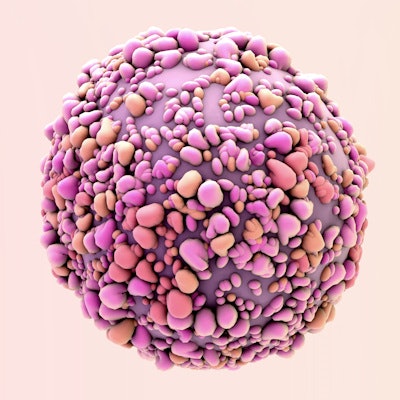
Genetics still play a crucial role in whether women over the age of 65 develop breast cancer, according to new research to be presented at the American Society of Human Genetics 2020 meeting, taking place virtually October 27-30.
The average age of breast diagnosis is 62, and women over the age of 65 account for a large portion of women with breast cancer. Despite this fact, women in this age group often do not qualify for genetic testing. Presenter Nicholas Boddicker, PhD, research associate at the Mayo Clinic, explored whether the data supported stopping genetic testing when someone reaches their mid-60s.
Boddicker and his team found women over the age of 65 who developed breast cancer were more likely than their peers to have genetic variants putting them at an increased lifetime cancer risk. Among women over the age of 65, 3.2% of women with breast cancer had a variant in one of 12 key genes, compared to 1.5% of women without breast cancer.
"This shows that a large number of women in this age category are predisposed to breast and other cancers," stated Boddicker in a press release.
Like younger women, women in their late 60s may have genetic variants that predispose them to cancer, including BRCA1, BRCA2, CHEK2, and PALB2. Women over the age of 65 with these variants had a moderate but significant risk of breast cancer, the authors noted.
Importantly, women ages 65 or older with BRCA1/2 mutations had a close to 20% lifetime risk of breast cancer. In addition, the residual risk of developing breast cancer was around 15% for women with PALB2 and CHEK2 disease-causing variants.
"In this study, women over 65 with no prior breast cancer found to have pathogenic variants in one of several genes would have remaining risk of breast cancer nearing 20% and could qualify for MRI surveillance in addition to mammography," stated Boddicker. "Without genetic testing, many of these women would not normally be screened this way."
Boddicker said future genetic testing research for older women is still needed, including studying how to better personalize risk estimates. Researchers should also investigate how to better characterize risk measurements for different racial and ethnic groups, he added.



















